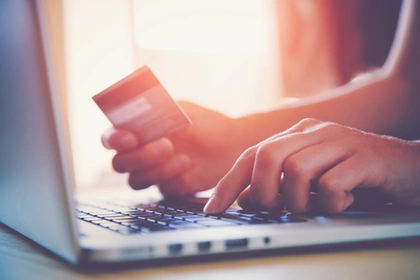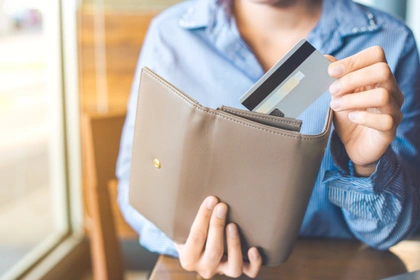Does not using a credit card hurt my credit score?
Not using your credit card doesn’t directly harm your credit score, but there are some knock-on effects to consider. Credit agencies, like Experian, Equifax and TransUnion, measure your chances of being accepted for credit in future. They base this on how you use the credit available to you.
If you don’t use your card, especially if it’s your only form of credit, you could miss the chance to prove you’re a reliable borrower.
Using your card regularly, with full payments made on time, helps show you can manage credit responsibly. It’s also a way to show lenders that you can handle available credit without maxing it out.
Should I close an unused credit card?
|
Reasons to keep your credit card open |
Reasons to close your credit card |
|
Boost your credit score: If the card is your only line of credit or one of few, keeping it open and using it occasionally can help you build your credit score. Make sure you pay at least the minimum payment each month and stay within your limit to boost your score. |
Avoid the risk of fraud: Unused cards can be targeted by fraudsters, especially if you don’t check your statements regularly. Closing the account can remove this risk. |
|
Maintain a good credit utilisation ratio: Closing the card will reduce your total available credit, which can increase your credit utilisation ratio—the amount of credit you use compared to the credit available to you. Lenders typically prefer a utilisation ratio below 30%. Keeping the card open, even if unused, can help keep this ratio low. |
Reduce the temptation to spend: If having access to credit increases your temptation to overspend, closing the account may help you stay within your budget. |
|
Keep up credit history: If you’ve had the card for a long time with a good repayment record, it can improve your credit score. Credit reference agencies like accounts with long, well-managed histories. |
Annual fees: Some credit cards come with fees, even if you don’t use them. If you're paying for a card you’re not using, you could consider closing it. |
|
Emergency backup: Having an unused credit card available can be a safety net for emergencies, such as unexpected car repairs or household expenses. |
Simplified finances: Fewer accounts can make it easier to budget and keep track of payments, helping you avoid missed payments or errors. |
How does closing a credit card affect my credit score?
-
Credit utilisation ratio: When you close a card, your credit utilisation ratio (the percentage of available credit you’re using) may go up, as your total credit card limit goes down. This is a common reason for credit scores going down after closing accounts, as lenders prefer lower utilisation rates.
-
Credit history length: Closing a card with a long history of responsible borrowing can lower the average age of your credit accounts, which could reduce your score. Credit agencies like accounts that have been open and well-managed for a long time.
-
Proof of reliability: If it’s your only credit account, closing it means losing the ability to show reliable borrowing behaviour. This might reduce your score over time.
-
Credit mix: Closing a card could mean that your credit mix is less diverse. Lenders usually like to see how you handle a range of different types of credit.
Ocean Credit Card
See if it's a YES before you apply
- Up to £8,000 credit limit
- Checking won't affect your credit score
- Get a response in 60 seconds
Intelligent Lending Ltd (credit broker). Capital One is the exclusive lender.

How long can I leave a credit card unused?
If you don’t use a credit card for 12-24 months, some UK providers may close it. Others may simply mark it as inactive. What counts as an inactive account tends to be different between providers.
If you don't use the card often but want to keep it active, consider making a regular purchase, like petrol, with your card every few months. You can avoid interest by paying the balance in full and on time.
Should I still check my statements if I don’t use my card much?
Yes, you should check your statements regularly, even if you rarely use the card. Fraudsters often target inactive accounts because the cardholder is less likely to notice unusual activity. Keeping a close eye on your account means you can quickly spot and report any transactions you don’t recognise.
Check that your billing address is up to date, especially if you’ve moved house. Having mismatched details can affect your credit file and be flagged as a potential risk by lenders.
Read on to discover other ways to protect yourself from credit card fraud.
Can unused credit cards affect my mortgage application?
When applying for a mortgage, lenders check your total available credit. If you have a low credit utilisation ratio and keep up with regular payments, then having unused credit cards could work in your favour.
Disclaimer: We make every effort to ensure content is correct when published. Information on this website doesn't constitute financial advice, and we aren't responsible for the content of any external sites.






